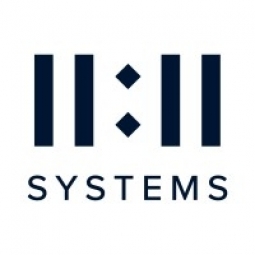iland, now 11:11 Systems, provides scalable cloud infrastructure to Millennium Consulting during a global pandemic

公司规模
SME
地区
- America
国家
- United States
产品
- 11:11 Secure Cloud - IaaS
技术栈
- Cloud Computing
实施规模
- Enterprise-wide Deployment
影响指标
- Productivity Improvements
- Customer Satisfaction
技术
- 基础设施即服务 (IaaS) - 云计算
适用行业
- 医疗保健和医院
适用功能
- 物流运输
- 商业运营
用例
- 远程资产管理
- 远程协作
服务
- 云规划/设计/实施服务
关于客户
Millennium Consulting is a Managed Service Provider, Information Services Support and Consulting firm based in the Baltimore, MD metro area. Their customers span multiple sectors, with a current focus in healthcare. Millennium provides IT, IS and business consulting support to organizations internationally with a current primary focus related to the healthcare vertical. They have been in partnership with 11:11 Systems, formerly iland, since 2011, utilizing their cloud services to support different workloads with a primary focus on security and compliance needs.
挑战
Millennium Consulting, a Managed Service Provider, Information Services Support and Consulting firm, faced an unprecedented challenge during the COVID-19 pandemic. Their customers, primarily in the healthcare sector, needed uninterrupted service and a scalable infrastructure to support their operations. The pandemic forced healthcare workers to work remotely, and healthcare facilities needed a reliable way to stay connected with their patients' families. Traditional cloud service providers were unable to handle the overwhelming capacity of data during the global pandemic, leading to service failures.
解决方案
11:11 Systems provided their Secure Cloud - IaaS solution to Millennium Consulting. This cloud platform could scale up or down depending on a healthcare facility’s needs, making it an ideal solution for the challenges posed by the pandemic. The platform is HIPAA compliant, platform agnostic, flexible for customer requirements, and capable of handling large amounts of data. It also comes with a responsive technical support team. The cloud capabilities of 11:11 Systems enabled Millennium to mobilize 750 full-time healthcare employees to work from home in a period of two weeks.
运营影响
数量效益

Case Study missing?
Start adding your own!
Register with your work email and create a new case study profile for your business.
相关案例.

Case Study
Hospital Inventory Management
The hospital supply chain team is responsible for ensuring that the right medical supplies are readily available to clinicians when and where needed, and to do so in the most efficient manner possible. However, many of the systems and processes in use at the cancer center for supply chain management were not best suited to support these goals. Barcoding technology, a commonly used method for inventory management of medical supplies, is labor intensive, time consuming, does not provide real-time visibility into inventory levels and can be prone to error. Consequently, the lack of accurate and real-time visibility into inventory levels across multiple supply rooms in multiple hospital facilities creates additional inefficiency in the system causing over-ordering, hoarding, and wasted supplies. Other sources of waste and cost were also identified as candidates for improvement. Existing systems and processes did not provide adequate security for high-cost inventory within the hospital, which was another driver of cost. A lack of visibility into expiration dates for supplies resulted in supplies being wasted due to past expiry dates. Storage of supplies was also a key consideration given the location of the cancer center’s facilities in a dense urban setting, where space is always at a premium. In order to address the challenges outlined above, the hospital sought a solution that would provide real-time inventory information with high levels of accuracy, reduce the level of manual effort required and enable data driven decision making to ensure that the right supplies were readily available to clinicians in the right location at the right time.

Case Study
Gas Pipeline Monitoring System for Hospitals
This system integrator focuses on providing centralized gas pipeline monitoring systems for hospitals. The service they provide makes it possible for hospitals to reduce both maintenance and labor costs. Since hospitals may not have an existing network suitable for this type of system, GPRS communication provides an easy and ready-to-use solution for remote, distributed monitoring systems System Requirements - GPRS communication - Seamless connection with SCADA software - Simple, front-end control capability - Expandable I/O channels - Combine AI, DI, and DO channels

Case Study
Driving Digital Transformations for Vitro Diagnostic Medical Devices
Diagnostic devices play a vital role in helping to improve healthcare delivery. In fact, an estimated 60 percent of the world’s medical decisions are made with support from in vitrodiagnostics (IVD) solutions, such as those provided by Roche Diagnostics, an industry leader. As the demand for medical diagnostic services grows rapidly in hospitals and clinics across China, so does the market for IVD solutions. In addition, the typically high cost of these diagnostic devices means that comprehensive post-sales services are needed. Wanteed to improve three portions of thr IVD:1. Remotely monitor and manage IVD devices as fixed assets.2. Optimizing device availability with predictive maintenance.3. Recommending the best IVD solution for a customer’s needs.

Case Study
HaemoCloud Global Blood Management System
1) Deliver a connected digital product system to protect and increase the differentiated value of Haemonetics blood and plasma solutions. 2) Improve patient outcomes by increasing the efficiency of blood supply flows. 3) Navigate and satisfy a complex web of global regulatory compliance requirements. 4) Reduce costly and labor-intensive maintenance procedures.

Case Study
Cloud-based healthcare solution for Royal Philips
Royal Philips wanted to launch its cloud-based healthcare solution HealthSuite Digital Platform in China to deliver services to help cope with challenges related to urbanization and population growth. Philips wanted to achieve this goal by combining mobile, cloud computing and big data technologies. To bring this platform and product to market, Philips required cloud computing and local technical service capabilities in China, in addition to a flexible IT infrastructure that could handle user requests.







